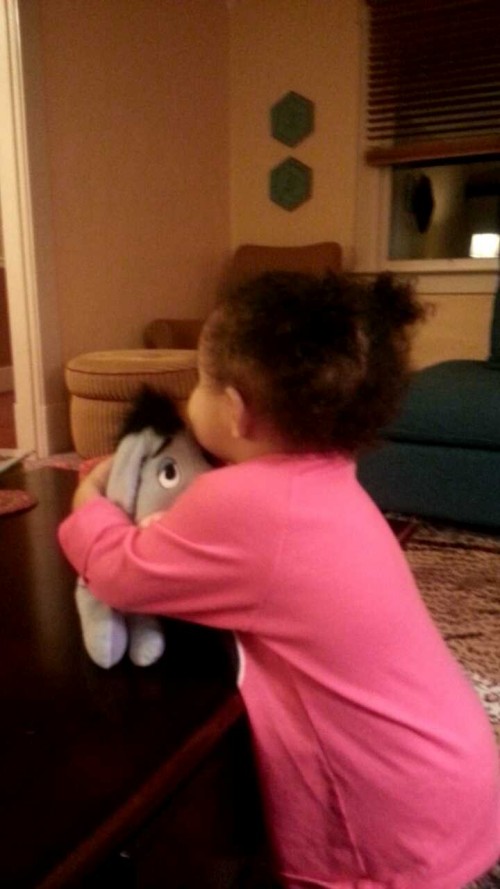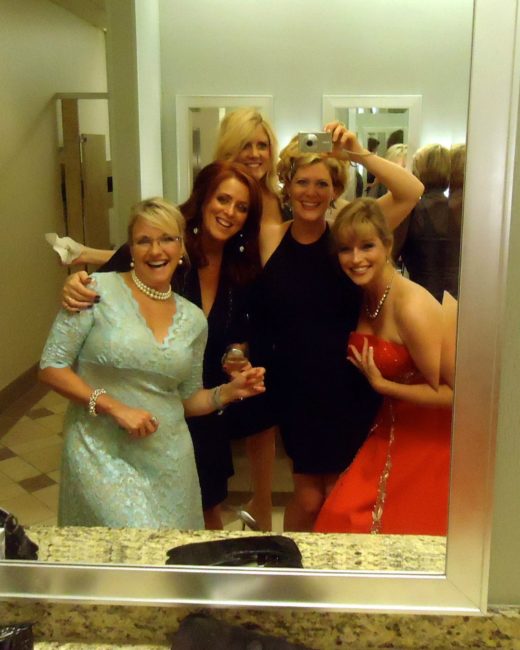Last updated on January 22nd, 2019 at 02:08 pm
“I’m sorry.”
It’s such a heartfelt couple of words.
You hurt someone’s feelings? “I’m sorry” can soothe the hurt.
Your friend is going through a painful divorce? “I’m sorry” can ease the pain.
Your BFF falls and breaks her wrist? “I’m sorry” shows her your concern.
“I’m Sorry” is a Bad Habit
But there’s a strange phenomenon happening lately, and I think the fact that I’m cognizant of it has to do with leaving a bad situation, and having my mind free to really look at where I am. And one thing that is making me crazy, is how much I apologize. I knew it on a periphery level, but then something happened to bring it to the forefront.
I was shopping at a department store. On my way to the dressing room, a woman walking toward me was texting on her phone. She didn’t see me, and smacked into me. It wasn’t slight. It was like being shoved. I was pushed to the side. She looked at me with distain. I immediately said, “I’m sorry.” And I immediately regretted it. She didn’t say a word – though I thought I heard the telltale huff of a woman who’d been grievously wronged. She just kept walking.
“I’m not sorry,” I said. “You should be sorry. That was your fault.”
But she was already half-way across the store, and admittedly, I was talking more to myself than her.
I was bugged. I was pissed, not at this lady, but at myself. How had I become this blithering idiot of “I’m sorries”? It was as if my brain had a long list of reasons to say I’m sorry.” ANd that list was being added to daily, as if the thousands of reasons weren’t nearly enough. When did this all start, and more importantly, when would it ever end?
As a little girl, I was taught to be polite. But now I was so polite I apologized for things that weren’t my fault at all!
To be honest, I don’t remember my mother telling me to say I’m sorry to anyone. But I”m sure it happened. That’s what good mother’s do. ANd nobody wants to raise a child who doesn’t know how to say they’re sorry. It falls into the same category as “Please” and “Thank you” and we all know how important those words are.
The Nice Little Girl Dilemma
This is at the forefront of my thoughts for another reason; my granddaughter, Curly. Curly is at that stage where she’s learning the power of what I learned were “magic words”, namely please and thank you. Not only that, but she also has come to the realization that she gets an inordinate amount of positive energy sent her way when she says them. Constantly reinforced everywhere she goes – this pint-sized purveyor of pleasantries, says them more and more. The grocery store, the coffee shop, the restaurant – they’re full of people who look down at Curly and gush with sentiments such as, “Well, aren’t you polite?” “What a nice little girl!” And “Stan, did you hear that? She said she was sorry.
So, enlightened as I was becoming, you’d think I would discourage this gush of sorry that was flowing from my granddaughter’s mouth. Truth be told, I didn’t do a thing. Turns out, it was not just encouraging to my 1-year old. It was just as encouraging to me; a sign that I had a very nice granddaughter, a very nice girl. And by comparison – if she was nice, I must be nice too. If she was nice, I must be an excellent grandmother, my daughter an excellent mother. Right?
I mean, we don’t go around thinking these things, or saying them aloud. But they’re true, none-the-less. I’m certain that most little girls grow into completely functional women who don’t apologize to texting women who nearly knock them down in department stores. But I am not one of them. I’m not sure if it’s gotten worse with age, or if I’m simply more aware of it now. Whatever the case, like a genetic propensity to become an alcoholic or gambler, I’m determined to face my sorry demons and cast them into the pit of hell, once and for all.
Balancing Our Apologies so That “I’m Sorry” Means Something
It’s a balance, of course…this sorry thing. There are many times that an “I’m sorry” is in order. But probably far fewer than we imagine. When those two words are used carelessly, and thoughtlessly, do they even mean anything? Probably not. It’s a balance, and balance is hard. It’s also a habit and habits are hard to break. But maybe…just maybe…being aware of it will help me to curb it, so that every “I’m sorry” that leaves my mouth is heartfelt, and not just doing what I was trained to do – be a nice girl.
I won’t be stopping Curly from apologizing. In fact, I think more mothers should teach their children to say they’re sorry. At Curly’s age, everything she learns is over-done at first. When she learned to hop, she hopped everywhere. When she learned to wave, she waved at everyone (animals included). But when she’s old enough, we’ll talk about this whole “I’m sorry” dilema. I want her to grow into a strong young woman, and part of that is knowing when to stand up for yourself and when to say you’re sorry. Until then…I’ll be working on that myself!
My daughter sent me a text the other day. Included was a short video. In fact, it was only ten seconds long. But that short video spoke volumes. In it, Curly hammered the table with a toy. She turned toward the camera looking troubled. She turned back to the table, and hugged it a flat hug saying passionately, “Sorry, table!”
Oh boy. This is going to be harder than I imagined.
Karen Fisher-Alaniz
Starting Over at Mid-Life
[fbcomments]

Karen Alaniz is a writer, published author, and a home renovation expert now that she’s remodeled an old farmhouse by herself. She strives to help women who are scared it may be too late to start over after a certain age and she encourages empty-nest women to invent a new, prosperous and full life–just like she has done. You can read more about Karen on her Amazon Author page.
Note: Articles by Karen may contain affiliate links and may be compensated if you make a purchase after clicking on an affiliate link.





